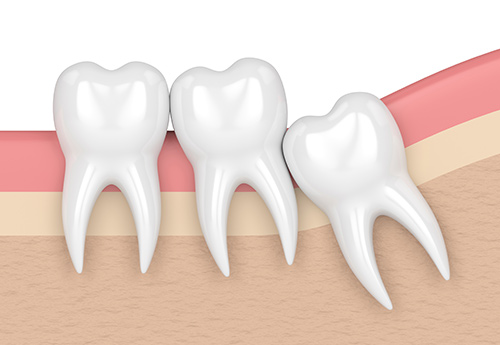Wisdom Teeth Removal By Oral Surgeon
We have 2 board certified oral surgeons on staff who can remove your normal teeth, wisdom teeth, offer other dental surgical needs all with the comfort of IV sedation. Both have over 20 years of experience.
Wisdom tooth extraction is probably the most common oral surgery procedure performed on patients, as the wisdom teeth become impacted in the majority of people. Impacted wisdom teeth can cause numerous problems, so patients often opt to have these teeth extracted before those problems develop. Patients who pursue wisdom tooth extraction typically consult with an oral surgeon to perform the procedure.

